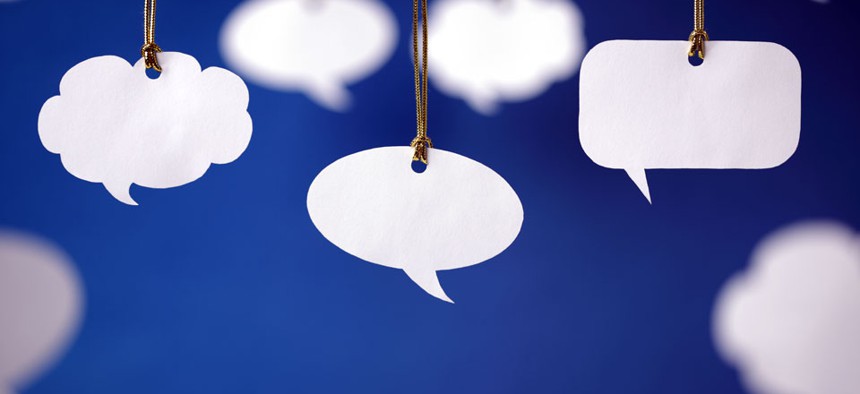Why People Don't Like to Talk About Government Surveillance on Social Media

Brian A Jackson/Shutterstock.com
In a recent survey only 42 percent of Facebook and Twitter users were willing to post about it.
Here's what social media is for, according to most people: Posting updates about your lunch, liking other people's updates about their lunch, getting follows, following other people, indulging in your vanity, stalking your exes, and oh, sharing videos of you dumping ice water on yourself .
Here's what it's not for, according to most people: political debate.
Why? Probably because there isn't enough space on Twitter .... and because all of your Facebook friends will unfriend you if you spew political opinions. And in a new Pew study on Internet behavior, this tendency to avoid speaking up on policy issues has been coined the "spiral of silence."
The rise of social media, such as Facebook and Twitter, has introduced new spaces where political discussion and debate can take place. This report explores the degree to which social media affects a long-established human attribute—that those who think they hold minority opinions often self-censor, failing to speak out for fear of ostracism or ridicule. It is called the 'spiral of silence.'
Researchers tracked engagement a hot-button issue, when the Edward Snowden whistleblowing case broke. According to the study, only 42 percent of Facebook and Twitter users were willing to post about it, while a whopping 86 percent said they would be happy to have an in-person discussion about the topic.
In addition, the survey showed people are more likely to talk if they find others agree with them. Because of this, if no one else is posting on social media, then those considering it probably won't either.
Below is a breakdown of Pew's findings for the Snowden case:

Though this might seem isolated to the Internet, the effect bleeds into the realm of IRL. As Angela Washeck writes over at Mediabistro :
Only until recently has sharing opinions online been a common thing, and we now know that what we do online affects our face-to-face conversations. Wrote Professor Keith Hampton, an author of the recent Pew study, 'The ‘Spiral of Silence’ on Social Media,' 'This raises the possibility that the spiral of silence spills over from online contexts to in-person contexts.'
Ultimately, even if people did use social media platforms to discuss policy issues, they largely found a sparse landscape for learning more. Access is limited to stories and content pertaining to the larger issues when fewer people share those stories. That's where the spiral comes in — the fewer people share, the fewer people read, and the fewer stories appear on the larger policy issues in play.
Read the full report here .
( Image via Brian A Jackson / Shutterstock.com )





